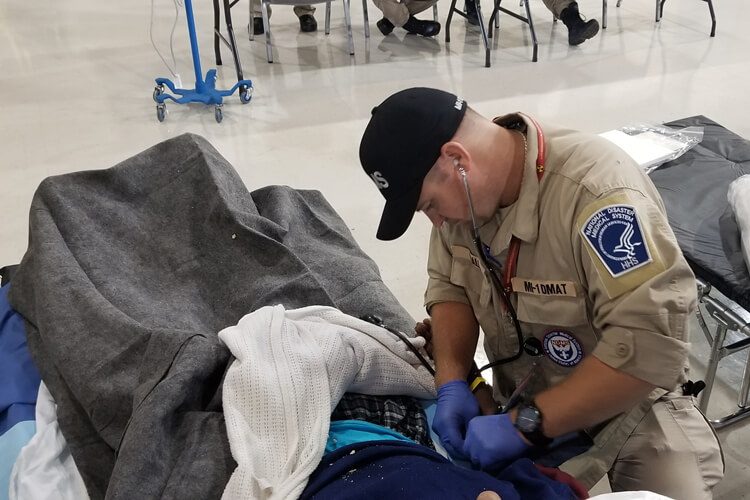Medical responders have a new resource at their disposal to help in identifying and treating sepsis patients in resource-limited environments: a 70-minute online training module, entitled, Disaster Medicine: Sepsis.
According to the Centers for Disease Control and Prevention (CDC), nearly 87% of sepsis cases originate outside the hospital. Therefore it is critical to recognize these patients early in these settings. The module provides recommendations for the identification and management of sepsis under austere conditions. The training features insights from four federal physicians who have extensive experience with the challenges of delivering critical care during disasters and public health emergencies.
The Biomedical Advanced Research and Development Authority (BARDA), as part of the U.S. Department of Health and Human Services’ Office of the Assistant Secretary for Preparedness and Response (ASPR), and the Sepsis Alliance collaborated with experts from ASPR and the CDC in developing the training module to assist emergency management and disaster response personnel, as well as medical staff responsible for triage in disaster settings.
The module is intended to address a gap identified in availability of traditional disaster medicine training to healthcare providers: education on the recognition and management of patients at risk of or presenting with sepsis. By focusing on disaster scenarios, this module emphasizes the identification, screening, stabilization, and evacuation of those suspected of developing sepsis and septic patients within non-traditional clinical environments.
Sepsis is life-threatening complication due to a dysregulated host response to infection that can cause serious tissue damage, organ failure, and death. Populations affected by disasters are exposed to a variety of health hazards such as trauma, burns, poor sanitation, and mass sheltering, all of which place them at increased risk of infection and sepsis. Under the austere, resource-limited conditions typical of disaster zones, the clinical identification and management of sepsis can be more challenging, compared to normal operating conditions in conventional health care settings.
This training provides insight into recognizing, assessing and evacuating sepsis or at-risk patients, and also seeks to increase awareness of the impact of sepsis as a health security threat on a national scale. The new online training module covers the foundational principles underlying all sepsis care; the identification of sepsis patients in field conditions where recognizing at-risk populations and the signs and symptoms of sepsis can be especially challenging; the screening and stabilization of septic patients in the field; and the challenges of coordinating evacuation of septic patients from a disaster site.
The free training is available at the Sepsis Alliance Institute, and complements a growing collection of free sepsis-related modules. Healthcare professionals can receive AMA PRA Category 1 Credit or nursing continuing education contact hours upon successful completion of the training.
The training was developed with support from BARDA’s Division of Research Innovation and Ventures (DRIVe) Solving Sepsis Program. Solving Sepsis seeks to reduce the incidence, morbidity, and mortality of sepsis, as well as the associated economic burdens.
Take the new Disaster Medicine: Sepsis training module at the Sepsis Alliance Institute.



